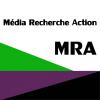Coop média de Montréal
Journalisme indépendant
First there was the Word, then Came Civilization by Layla AbdelRahim
First there was the Word, then Came Civilization: How Fiction Structures the Reality of Predation and Violence
by Layla AbdelRahim
How we inhabit space, how we live in it and with the other living and nonliving beings ultimately depends on whether we see the world as wild, existing for its own sake or whether we understand existence as a food chain, where everything exists for the purpose of consumption: to eat someone else or be eaten by someone else. In this conversation, Layla AbdelRahim will discuss how our stories of origins explain the existence of things on earth and thereby structure our relationships with each other and across species with the world. Based on the research done for her book, Wild Children — Domesticated Dreams: Civilization and the Birth of Education (Fernwood, May 2013), the ontological premises in our fundamental anthropological narratives justify coercive relationships of dominance and splinter our sense of community with our environment. In this sense, what and how we « consume » is intimately intertwined both with our stories of origins and with the domestication of sexuality thereby structuring a culture of predatory socio-economic relationships that manifests itself as a culture of rape, carnivorism, exploitation of human and nonhuman « resources », and forced, obligatory schooling.
***
01:04 The stories that we keep relaying both for entertainment and for education purposes in our scientific and fictional narratives are based on the premise that humans are predators. Idealised and mythical figures of predation thus inform our economic systems and our food-consumption pratices.
03:50 How did the world come about?
11:30 How do we domesticate our children? And why?
14:00 Liberation from predatory social relations.
Questions and comments from the public:
17:34 What are your goals? What do you want to achieve?
28:42 Is not part of the problem that people deny the extent of destruction?
31:41 How would a society based on a different narrative work?
37:47 Part of human life is deriving energy from the environment and there is a cost for human life.
40:33 How do we undomesticate ourselves and our children?
46:24 In order to change, we have to create our stories ourselves.
50:37 On reciprocity.
52:32 Is it possible that you are adding an extension narrative to a very simple observation of life feeding off life?
56:54 Is there a judgement on the relationship between the cheetah and the gazelle?
01:05:49 Are we not creating our stories by observing nature and have you come across narratives that are not based on the story of predation?
***
Wild Children-Domesticated Dreams: Civilization and the Birth of Education
Cet événement a eu lieu lors d’une soirée « Rice and Beans » au Shakti Rock Gym.
About the poster
Has posted 50 times.
View Média Recherche Action's profile »
Recent Posts:
Média Recherche Action ()
Member since May 2012
About:
Média Recherche Action est un collectif de recherche et d'éducation, de production audio, d'ateliers, de textes, de traductions, de diffusion électronique, bientôt de vidéos et de photographies... Nous réalisons et réaliserons entrevues, reportages, couvertures d'événements, documentaires... Ce collectif est dédié à diffuser de l'information pertinente aux individuEs, activistes, organisations (…) préoccupéEs par la défense de la terre et de sa biodiversité ainsi que par la protection et la création de modes de vie soutenables tout comme de relations égalitaires entre les humainEs. Le projet Média Recherche Action a pour objectif d'enquêter sur différentes situations d'oppression et de destruction environnementale ainsi que de contribuer à faire connaître une diversité de luttes anticolonialistes, féministes, anticapitalistes, anticivilisationnelles (…) qui s'y opposent. Média Recherche Action visera aussi à organiser mensuellement un cabaret d'actualités mettant de l'avant des performances artistiques radicalement engagées, des présentations multimédia, des projections visuelles et sonores, des lectures, des interventions, des expositions... Avis à celles et ceux qui seraient intéresséEs à nous recevoir dans leurs espaces ! Pour communiquer avec nous: media.recherche.action@riseup.net Aussi sur facebook: http://www.facebook.com/MediaRechercheAction Nous diffusons plein d'actualités,d'analyses, d'événements... sur notre fil d'actualités : http://www.facebook.com/pages/Diffusion-M%C3%A9dia-Recherche-Action/373614469398028?ref=hl Suivez-nous aussi sur Dailymotion.com à http://www.dailymotion.com/mediarechercheaction * * * Media Research action is a collective that performs a wide range of activities, including research and education, audio production, workshops on a variety of topics, texts and translations, online distribution, videography and photography (soon). We produce documentaries as well as cover events and do interviews and reporting. The collective is dedicated to broadcasting relevant information to individuals, activists, organizations, etc that are concerned with defending the land and its biodiversity, as well as the creation and protection of sustainable livelihoods and egalitarian relationships between humans. The Media Research Action project aims to investigate into different situations of oppression and environmental destruction as well as raise awareness about a variety of anti-colonial, feminist, anti-capitalist, anti-civilization etc struggles who oppose them. Media Research Action will also seek to organize monthly cabarets, bringing forward radically committed artistic performances, visual projections and readings, interventions, exhibits... Anyone interested in welcoming us in their space are encouraged to get in touch with us. To contact us: media.recherche.action@riseup.net Also on facebook: http://www.facebook.com/MediaRechercheAction We are also disseminating information, analysis, events... on this other Facebook page : http://www.facebook.com/pages/Diffusion-M%C3%A9dia-Recherche-Action/373614469398028?ref=hl Follow us also on Dailymotion.com at http://www.dailymotion.com/mediarechercheactionThe site for the Montreal local of The Media Co-op has been archived and will no longer be updated. Please visit the main Media Co-op website to learn more about the organization.



